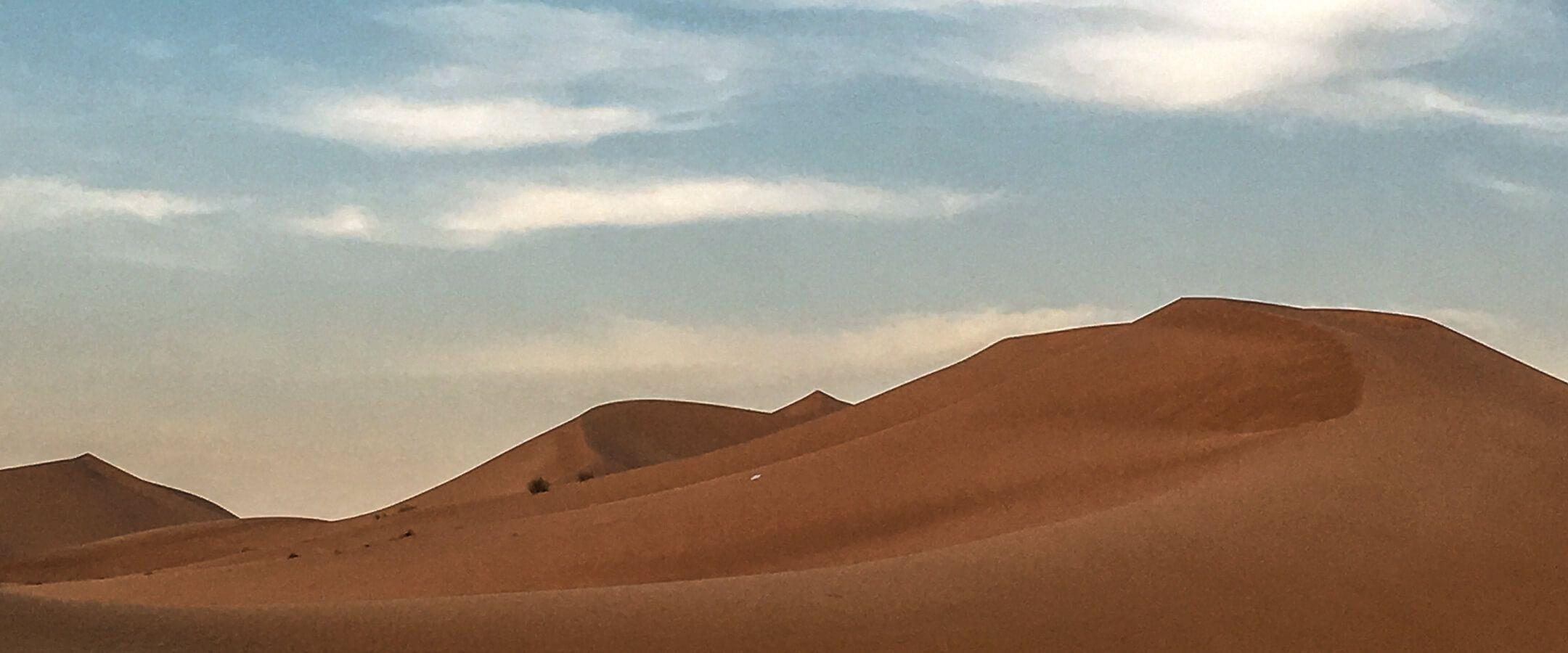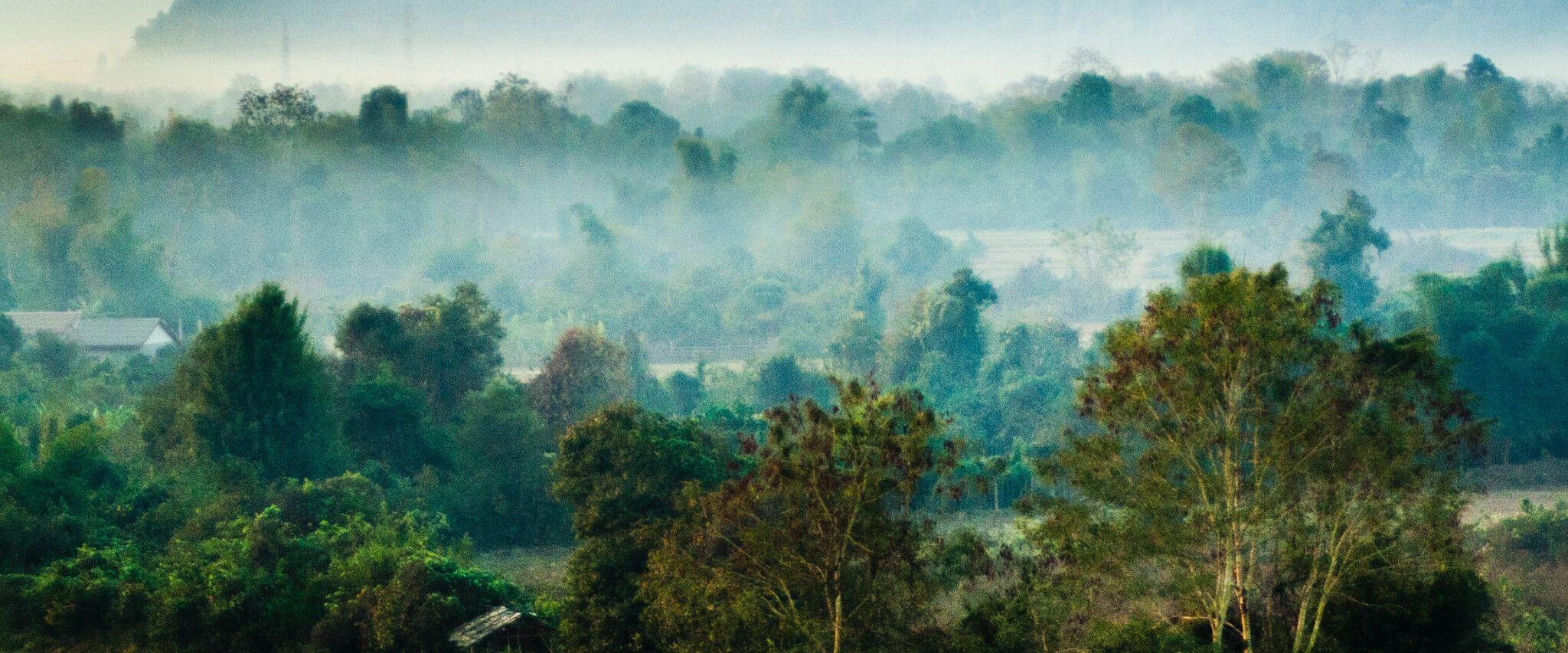Curiosity and Climate Stewardship
Eesha Rangani, astrobiologist and PhD candidate, spends her time in the study of extremophiles, or adaptability within extreme conditions. Her work has allowed her a unique perspective on the importance of environmental stewardship.
In the heart of India, where the dichotomy of urban sprawl and rural tranquillity coexist, I was raised in a world where nature was an integral part of our daily lives. Dogs, cows, and wild birds made regular visits to our home, triggering a childhood curiosity that would shape my path towards environmental advocacy.
Fueling this curiosity was my mother's nurturing spirit, guiding me to the nearest wildlife rehabilitation centre every weekend. These visits opened my eyes to humanity’s effect on wild spaces. There, I witnessed the devastation of a monkey rescued from electrocution, hawks grounded due to fences, and snakes displaced from their homes by our encroachment. Each creature mirrored us in their capacity to feel pain, establish social structures, and yearn for survival and prosperity.
As I became increasingly connected to nature, I began to wonder: could life exist beyond our planet?
This question set the course for my career in astrobiology, where the convergence of marine biology and astrobiology unveiled the mysteries of extremophiles, or the adaptability to extreme conditions.
Now, as a PhD candidate at the University of Southern California, my research takes me to untold depths: the oceans. There, we find alien-like creatures that are yet to be fully discovered. The angler fish, with its lure mimicking a fishing rod to catch prey, deep-sea worms thriving in blistering volcanic environments, and crabs cultivating microbial farms in their arms—all inhabitants of the ocean's twilight zone.
Our oceans are a vast, unexplored frontier holding the key to understanding life on Earth. They are also vital to our survival.
However, the oceans face formidable obstacles, such as deep-sea mining and marine carbon dioxide removal. Deep-sea mining, driven by the pursuit of valuable minerals like copper, zinc, nickel, gold, silver, and phosphorus, poses grave risks to fragile ecosystems in the deep sea. The disruption caused by mining activities threatens biodiversity and releases sediments that impact marine life.
Similarly, marine carbon dioxide removal, aimed at reducing atmospheric carbon, carries the risk of unintended consequences. These activities, while claiming to address environmental issues, paradoxically contribute to the negative impacts on both marine life and climate change.
As a climate action advocate, I find myself at the crossroads of conservation and exploitation.
Environmental stewardship has become the hinge upon which our future depends.
The delicate balance we strike between unravelling the mysteries of our oceans and preserving their fragile ecosystems is critical for the future of our planet. It's a call to arms against destructive practices that undermine the very life-supporting systems we are striving to understand.
In this challenging landscape, I firmly believe that becoming stewards of our planet and fostering biodiversity is the only just solution to climate change. Biodiverse ecosystems offer resilience against environmental changes, acting as buffers against extreme weather events, pests, and diseases.
They are the silent architects of our climate stability.
If we are to thrive sustainably, we must discard exploitative practices and embrace a mindset that recognises the interconnectedness of all life forms. Nature-based solutions not only contribute to carbon sequestration but also bolster adaptation and mitigation efforts against climate change.
Consider the forests—lush and diverse. These havens of biodiversity stand as resilient fortresses, showcasing the adaptive strength inherent in nature. To live sustainably is to acknowledge this strength and work in harmony with the natural world.
As I reflect on my journey, from the curiosity sparked by fleeting encounters with wildlife to the profound exploration of our oceans, I am driven by a singular conviction—the need to protect and preserve the wonders of our planet. It's a journey of self-discovery intertwined with a mission to secure a future where humanity, like the diverse life forms that share our home, can thrive in harmony with the Earth.
In the face of daunting challenges, let us not forget that we are not just inhabitants of this planet; we are its guardians, responsible for steering it toward a thriving future where the wonders of nature endure.
Environmental stewardship has become the hinge upon which our future depends.
Most Popular
The Climate Tribe delivers stories about Biodiversity and Conservation, Circular Economy, Food and Water , and how they intersect with climate.
Subscribe
Get the latest stories inspiring climate action around the globe straight to your inbox.






